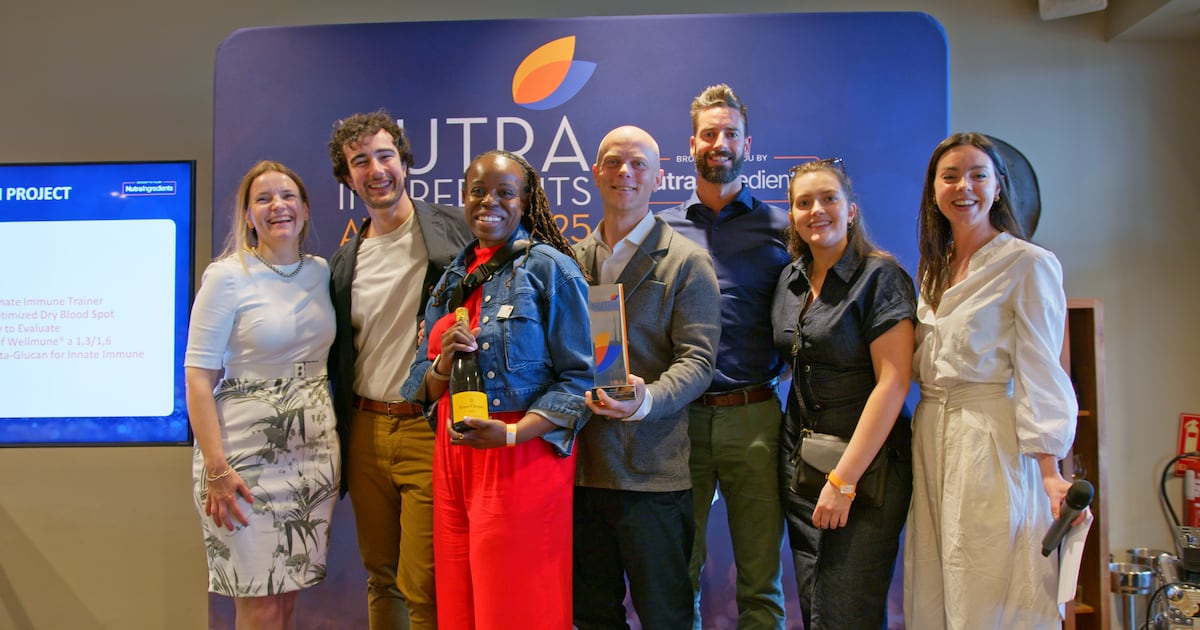
This year, Kerry took home the award for developing and validating a new minimally-invasive methodology—dry blood spot samples—to measure innate immune training following Wellmune supplementation.
Using mRNA-based immune biomarker tracking, the researchers were able to measure over 500 mRNA biomarkers associated with immune health and function, highlighting its potential use in the evaluation of other dietary supplements.
In addition to allowing study participants to collect their own blood samples, the methodology also sheds light on the mechanisms at play, according to Dr. Alexandra Boelrijk, global vice president in research and development and Kerry.
“This new technique helps us to understand much more about the mechanism of action, using a very non-invasive technique of small blood spots on a paper,” she said. “We will use this technique for many other studies, and it will help us to elucidate more of those mechanisms, like we have done for Wellmune.”
Wellmune and innate immune training
Wellmune is a baker’s yeast-derived beta glucan postbiotic, recognized as the first ingredient to be clinically studied as an oral immune system trainer.
By enhancing the efficiency of innate immune cells, the product supports immunity by helping these cells respond more swiftly and effectively to health challenges.
Wellmune has been extensively studied, with over a dozen clinical trials documenting its immune benefits. However, until recently, measuring the ingredient’s impact relied on participants travelling to a lab to have blood samples taken, which is both invasive and can disrupt a person’s normal schedule.
The dry blood spot methodology allows the participant to collect a few drops of blood onto treated paper, without the need for a lab visit. The researchers were then able to extract and quantify total RNA for the measurement of mRNA biomarkers.
“It’s a new method to understand the metabolites that are important for the mechanism of action of Wellmune,” Dr. Boelrijk said. “What we were able to do was use these blood spots on paper that we had from previous trials and look at them and analyze all the different metabolites—and that has helped us to understand the mechanisms of Wellmune even better.”
Next steps
Innate immune training has always been difficult to measure due to the need to challenge the immune system, and this new approach may therefore make it easier to gauge success rates.
“Over the last decade, we thought we understood that only the adaptive immune process could be trained—and very specifically, like a vaccine, but now, we know that the innate immune system […] can also be trained to be faster and more effective,” Dr. Boelrijk said.
Now that the research method has been validated, it is expected to be used much more frequently to determine the impact of other dietary supplements, according to researchers at the University of Texas.
“We anticipate that this is the first of many studies from our laboratory using precise mRNA biomarkers to elucidate the impact of dietary supplements like [Wellmune],” the noted in a recently published research paper on Wellmune’s ability to train the innate immune system. “This approach is routinely used in drug discovery, and it seems fitting to be used in further elucidation of the effects of dietary supplements on human health.”
